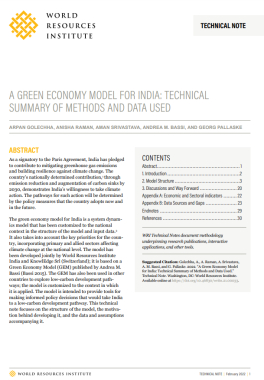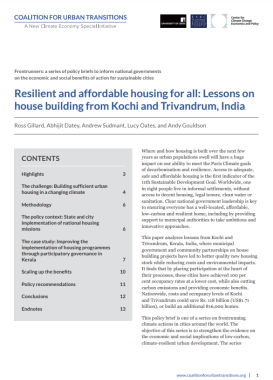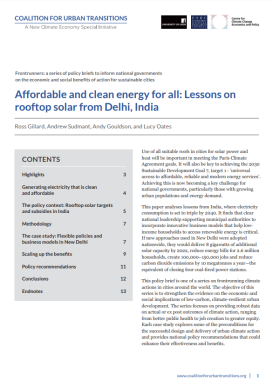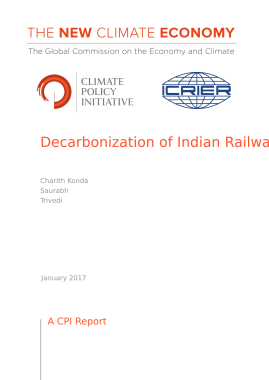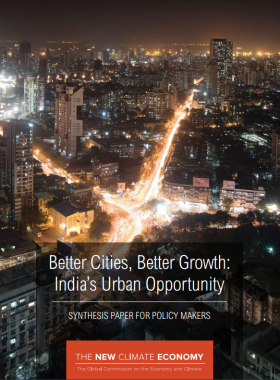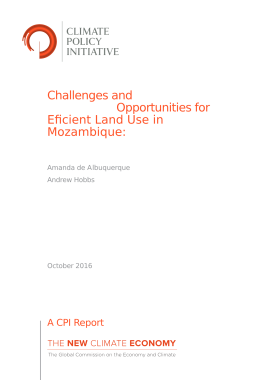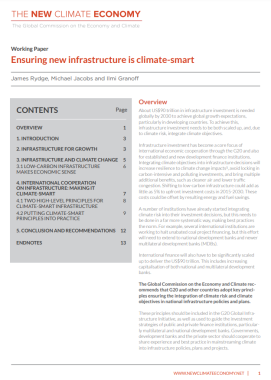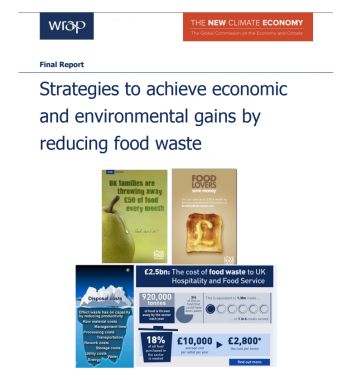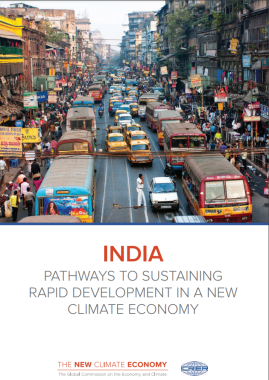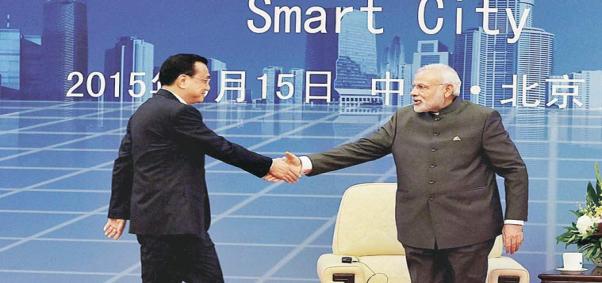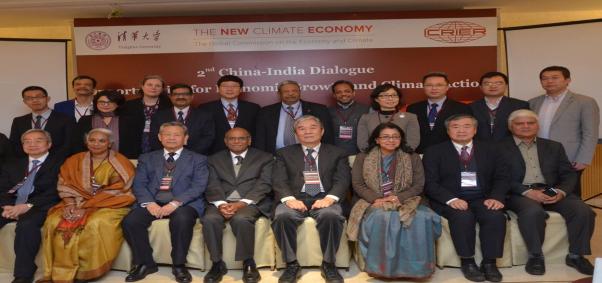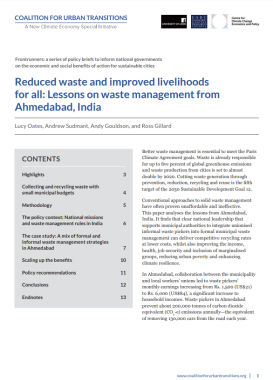
Conventional approaches to solid waste management have often proven unaffordable and ineffective. This paper analyses the lessons from Ahmedabad, India. It finds that clear national leadership that supports municipal authorities to integrate unionised informal waste pickers into formal municipal waste management can deliver competitive recycling rates at lower costs, whilst also improving the income, health, job security and inclusion of marginalised groups, reducing urban poverty and enhancing climate resilience.
Downloads
3.96 MB
1.98 MB
4.04 MB
2.03 MB
1.48 MB
2.76 MB
1.57 MB
11.47 MB
712.23 KB
919 KB
2.36 MB
1.87 MB
2.06 MB
1.54 MB
3.67 MB
727.4 KB
![]() Reduced waste and improved livelihoods for all: Lessons on waste management from Ahmedabad, India
Reduced waste and improved livelihoods for all: Lessons on waste management from Ahmedabad, India

